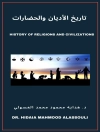In ‘Pastoral Care, ‘ Pope Gregory I offers a profound exploration of the moral and ethical responsibilities of church leaders. Written in the 6th century, the text is marked by its clear prose and practical guidance, designed to assist bishops in shepherding their congregations. Gregory’s style marries theological insight with pragmatic advice, emphasizing the importance of virtue, compassion, and humility in pastoral leadership. This work reflects the challenges of a post-Roman society grappling with the complexities of governance and spirituality during a time of spiritual upheaval and societal transformation. Pope Gregory I, also known as Gregory the Great, served as pope from 590 to 604 CE and was a significant figure in the early Church. His extensive experience as a monk and administrator, combined with his deep theological training, shaped his vision for effective pastoral care. Through his writings, Gregory sought to offer sound advice to ecclesiastical leaders, drawing from both scriptural precedent and the lived experience of the Church in his time. His concerns for Christian morality and the welfare of the soul are evidenced throughout this seminal work. ‘Pastoral Care’ is not merely a historical document; it is a timeless guide for clergy today. Its insights are invaluable for those in spiritual leadership and serve as a reminder of the essential qualities of empathy and ethical commitment in pastoral work. Readers seeking to deepen their understanding of church leadership will find Gregory’s reflections to be both relevant and enlightening.
Tentang Penulis
Pope Gregory I, also known as Gregory the Great, was a preeminent figure in the early Christian Church and one of the four great Doctors of the Latin Church. Born around 540 A.D. into a wealthy Roman family, Gregory pursued a life of public service before turning to monasticism. In 590, he assumed the papacy, becoming the first monk to ascend to the position. His pontificate was marked by theological, liturgical, and administrative reforms, influencing both ecclesiastical and secular governance. Gregory’s most far-reaching written contribution is ‘Regula Pastoralis’ (The Book of Pastoral Care), a seminal guide for clergy that outlined the responsibilities and virtues of bishops and served as an essential manual for medieval clergy. The text encapsulates his conviction that the moral integrity and spiritual insight of religious leaders are paramount. Gregory’s theological perspectives and pastoral acumen have had a lasting impact on Christianity, earning him a reputation as a foundational figure in Church consolidation and organization. His blend of Roman administrative acumen with Christian piety set the template for medieval papacy. In his works, one can discern a fusion of practical governance with spiritual leadership, a balance that he maintained throughout his life. His contributions are indispensable to understanding the evolution of Western ecclesiastical structures and the spread of Christian doctrine.




